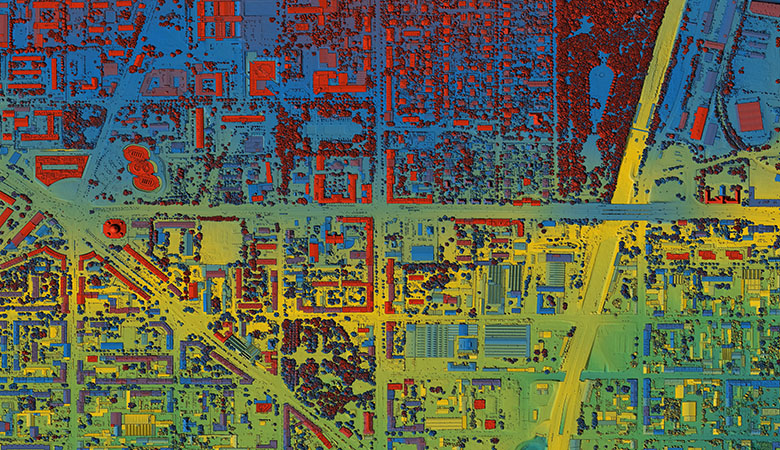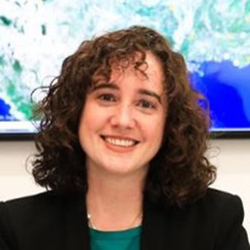Policy Analysis and Strategic Planning

About Us
The U.S. DOT Volpe Center’s Policy Analysis and Strategic Planning Division provides expertise across all aspects of transportation policymaking and program/project delivery lifecycle, including interpretation, implementation, evaluation, and adaptation.
Our team of experts and specialists carry out work on a range of transportation-related topics, building and sustaining high-impact programs. We collaborate with our sponsors, such as FAA, FHWA, FTA, and Office of the Assistant Secretary for Transportation Policy, to build strong relationships and yield high-impact outcomes.
The goal of our work is to visualize, analyze, and better understand all aspects of transportation to empower our sponsors to streamline processes and make informed, data-driven management and transportation planning and infrastructure decisions.
Our Capabilities
Economic and Policy Analysis
- Leverage a variety of techniques to address today’s transportation policy questions with focus areas including the National Environmental Policy Act and permitting in compliance with statutory requirements and to expedite project delivery.
- Initiate, facilitate, and implement strategic planning efforts and provide targeted program design support related to sponsors’ policy implementation, rulemaking, and working group activities.
Applied Data Science
- Use cutting-edge skills to gather, manage, visualize, and analyze data.
- Translate, simplify, and effectively communicate the data to a wide audience.
- Use numerous forms of mapping to advance spatial analysis and tools.
Impartial Investigations and Program Evaluations
- Conduct research, analysis, and evaluation on a range of project components, including interview and survey design, policy analysis, statistical analysis, qualitative data analysis, surveying and forecasting, and Geographic Information Systems (GIS).
- Build, sustain, and evaluate impactful programs by incorporating strategic planning into everything we do.
Meet Our Team
View selected staff biographies.
.jpg) Rachel Strauss McBrien
Rachel Strauss McBrien
Chief
Rachel Strauss McBrien is chief of the Policy Analysis and Strategic Planning Division at the U.S. DOT Volpe Center in Cambridge, MA. She was previously in the Program Development and Capacity Building Division where she worked with a range of federal agencies, including FAA, FHWA, FTA, National Park Service, and the Assistant Secretary for Transportation Policy, to promote strategies and activities that advance the work of their offices and support efforts that encourage information-sharing and foster dialogue.
McBrien has extensive experience in facilitating interagency coordination to achieve a common goal. In addition, she develops and delivers products, including written materials, workshops, and webinars, that showcase best practices in transportation planning and project delivery across the United States.
McBrien holds a master’s degree in city planning from the University of Pennsylvania (Philadelphia, PA) and graduated Phi Beta Kappa from Boston College (Newton, MA) with a BA in English. She is certified by the American Institute of Certified Planners and the Project Management Institute.
_0.jpg) Gary M. Baker
Gary M. Baker
Senior Geospatial Analyst/Developer
MA Software Engineering, Harvard Extension School
BS Geography, University of Massachusetts
Gary Baker joined the U.S. DOT Volpe Center in 1996. He provides expertise in geographic information systems (GIS), complex spatial analysis, tool and model development, custom web mapping application development, and all things geospatial. Baker applies these skills to better understand various aspects of transportation, including Infrastructure, movements and traffic, crashes, and impacts. During his tenure at the U.S. DOT Volpe Center, he has worked on a wide array of diverse projects involving all modes of transportation from the local to the global scale.
 Zachary T. Bergeron
Zachary T. Bergeron
Transportation Policy Analyst
MS Sustainability Science, University of Massachusetts Amherst
MS Biology (Visual Ecology), University of Illinois at Urbana-Champaign
BS Biology, University of Maryland, Baltimore County
Zachary Bergeron has worked as a policy analyst at the U.S. DOT Volpe Center since 2022. He provides research and policy support focused on micromobility, pedestrian safety, and asset management. His work has supported FHWA, FTA, the Joint Office of Energy and Transportation, the Bureau of Ocean Energy Management, and other federal agencies. Bergeron holds a master’s degree in sustainability science from the University of Massachusetts Amherst (Amherst, MA), a master’s degree in visual ecology from University of Illinois at Urbana-Champaign (Urbana, IL), and a bachelor’s degree in biology from the University of Maryland, Baltimore County (Baltimore, MD).
 Gina Filosa
Gina Filosa
Policy Analyst
Master’s Degree in Urban and Environmental Policy and Planning, Tufts University
BS Environmental Studies, Providence College
Gina Filosa joined the U.S. DOT Volpe Center in 2006, where she leads technical research and policy analysis efforts focused on resilient transportation and environmental stewardship. She has also led several evaluations to assess the effectiveness of federal transportation policies and programs related to resilience, environmental review and permitting, and transportation safety.
Filosa holds a master’s degree in urban and environmental policy and planning from Tufts University (Medford, MA) and a bachelor’s degree in environmental studies from Providence College (Providence, RI).
 Alison Link
Alison Link
Geospatial Analyst
Master of Geographic Information Science, University of Minnesota
MA Multicultural College Teaching and Learning, University of Minnesota; Graduate minor, Program Evaluation
BA International Relations, Grinnell College
Alison Link joined the U.S. DOT Volpe Center in 2023 as a geospatial analyst in the Policy Analysis and Strategic Planning Division. She works on a wide range of projects involving geospatial data cleaning, transformation, visualization, and web applications. Link’s technical expertise includes tools like Python, R, SQL, as well as data management and data governance support. Prior to joining the U.S. DOT Volpe Center, she worked as an academic technologist and data analyst at the University of Minnesota.
 Caitlin Willoughby
Caitlin Willoughby
GIS Specialist
Caitlin Willoughby is an environmental geospatial/National Environmental Policy Act (NEPA) professional with more than twenty years’ experience in technical, analytical, and geospatial project experience, respected for her analytical, research, and communication skills, and attention to detail. She is knowledgeable in all aspects of planning for and applying environmental and geospatial science technologies, from problem identification, requirements gathering, methodology, analysis, results evaluation, cartography, and other visual communication. Willoughby has experience in planning and helping to develop custom geospatial solutions for analyses and visualization, including storymaps, dashboards, data management, data creation and manipulation, and cartographic solutions for environmental and NEPA support.
Willoughby has been at the U.S. DOT Volpe Center since 2021, providing geospatial analytical and technical support, program management, and environmental support to the FAA, FMCSA, the Federal Permitting improvement Steering Council (FPISC), FHWA, and National Park Service. She leads GIS support to the FAA’s Unstaffed Infrastructure Sustainment (UIS) Program, where she oversees the effort to update all Air Traffic Operations National Airspace System facilities across the country in the Geospatial Event Management System (GEMS) hosted within the FAA’s firewall. This effort has seen ~90% verification of ATO facilities via latitude and longitude locations using authoritative data and imagery to validate the site. GEMS is being used as the latitude and longitude database for many other FAA databases, including the Facility Service and Equipment Profile (FSEP), which now hosts GEMS’ lat/longs. This effort has been a long time coming and she is happy to have been a part of this important work!
Prior to joining the U.S. DOT Volpe Center, Willoughby was a contractor with Booz Allen Hamilton for 17 years, providing project management and technical environmental, geospatial, and NEPA support for many federal agencies, in both defense (e.g., Army, Air Force, Marine Corps, Navy, OSD) and civil government (e.g., BLM, DOT, EPA, FAA, NPS). Before Booz Allen, she worked as a GIS/Information Scientist at a non-profit environmental breast cancer research organization, Silent Spring Institute. There, she helped research and analyze geospatial data for environmental factors and breast cancer incidence.
